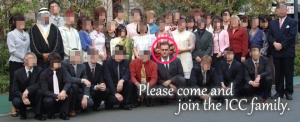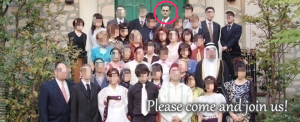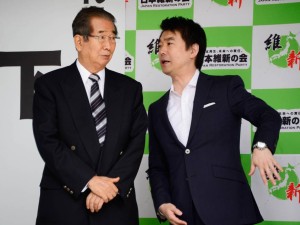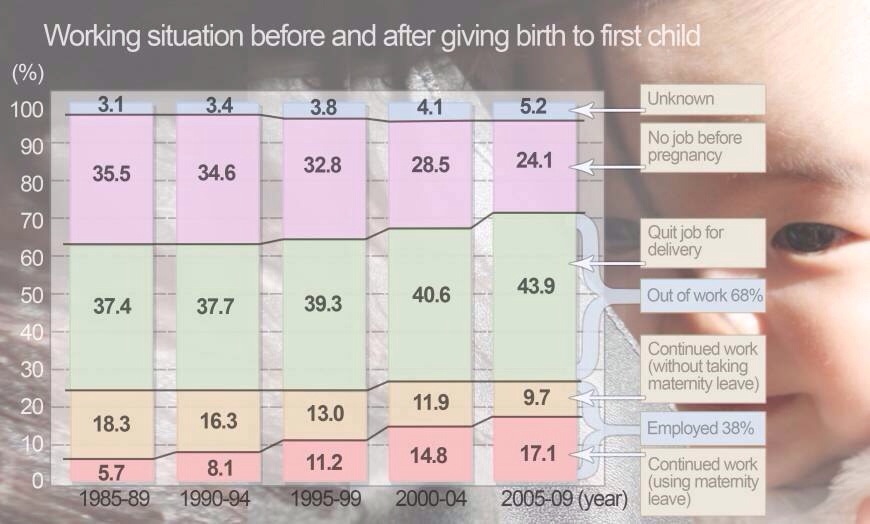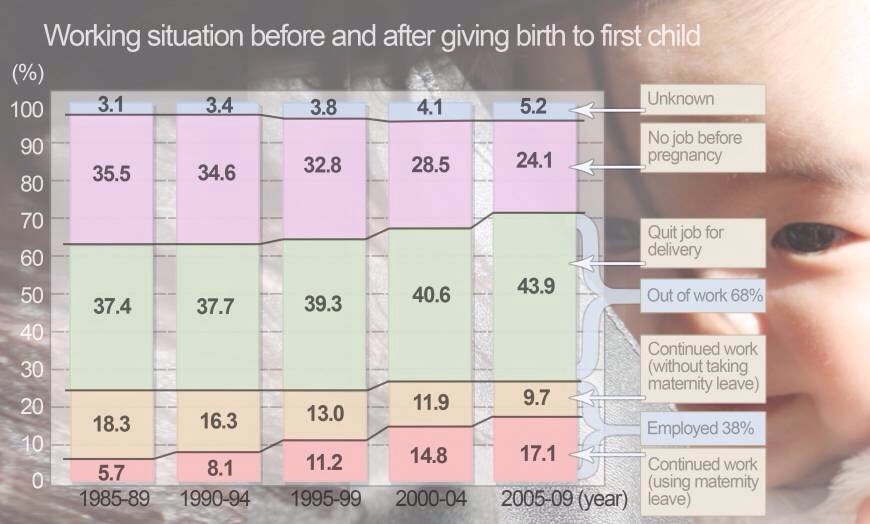By Hifumi Okunuki
Illustrations by Time O’Bree
Japan’s old calendar called December shiwasu (師走). These two kanji mean “teacher” and “run.” The idea was that the last month of the year is so busy that even a staid, starch-shirted professor finds him or herself scurrying around like a rabbit, trying to get everything done on time.
As we hurtle toward 2014, it’s time to look back on how the Year of the Snake treated labor. In keeping with the growing trend on TV, blogs and news sites, I’ve devoted this final edition of the year to a Top 5 list. The Top 5 Labor Pains of 2013 will focus on what really shook things up in terms of labor relations and employment law. In keeping with convention, I’ll count backwards.
Note: These are my personal picks and you may question my choices or believe other labor news to be more deserving of inclusion. If so, please don’t hesitate to let me know.
5. The planned ‘special dismissal zone’

The media jumped on the plan, calling the proposed area a “dismissal zone,” to which academic Tatsuo Hatta, the head of the working group, retorted, “It’s a job creation zone, not a dismissal zone.”
What kind of jobs do these planners intend to create for us? Since firms are free to employ and un-employ workers at will, these workers will in effect become interchangeable parts in the corporate machine. For every job created, employers can cherry-pick which workers to let go, leading to massive turnover and great social instability.
The plan raised such an uproar that it has been put off for now. But proponents will not roll over so easily. When the winds are right, they are sure to give it another shot.
4. Rin Danda, labor standards inspector

I cannot overemphasize the significance of the fact that a labor standards inspector was made the protagonist of a TV series.
I had already read the comic book “Dandarin,” which follows the adventures of plucky Rin Danda, and was concerned that something might be lost in translation en route to TV. I have been reassured by the first series, which ended Wednesday. It is obvious that producers have researched the Labor Standards Bureau properly and have carefully avoided making the script preachy.
Ratings have been poor, but the series has gone a long way toward conveying the reality facing the modern worker in Japan.
3. The Fukushima far-more-than-50

Do you remember the “Fukushima 50″? They were the workers who struggled frantically to regain control over the Fukushima No. 1 nuclear power plant just after the triple meltdown caused by the March 11, 2011, Great East Japan Earthquake and ensuing tsunami. The domestic and foreign media heaped accolades upon them, suggesting they were heroes burning with a sense of mission who demonstrated remarkable courage in fulfilling their duties with scant regard for their own lives.
More than 2½ years have passed, yet the government and society have nearly forgotten those who still toil day and night at the plant. If they were to drop their tools for even a night, the resulting contamination could leave our country uninhabitable. And it isn’t just 50 of them anymore — let’s recognize the thousands of heroes who have worked, still work and will work at the Fukushima No. 1 plant to contain the contamination and protect our environment.
And what are working conditions like for these heroes? Unfortunately, many workers there are slaving under horrible sweatshop conditions. Tokyo Electric Power Co. hires layer upon layer of subcontractors, sub-subcontractors and so on, with most workers involved in the cleanup eking out a living on the very lowest tiers of this exploitation pyramid.
The biggest problem with this structure is that no one can figure out who is accountable for employment and working conditions. With little or no preparation or training, these workers are suddenly thrust into highly dangerous tasks beyond the reach of labor law but well within the reach of harmful daily doses of ionizing radiation. Even their “danger pay” is skimmed by their bosses and their bosses’ bosses.
Most workers grin and bear it without a peep of protest, fearful of losing the only job they can find. Recently, however, one worker employed by a fifth-tier subcontractor took action. He was told upon hiring that he would not have to work in dangerous conditions, yet he was assigned to increasingly high-exposure tasks, such as removing glass near one of the reactor buildings. The day after he protested that he had been promised a safe job, he was fired.
He joined a labor union, which requested collective bargaining with five companies, including Tepco itself, over demands such as reinstatement, an end to false outsourcing (gisō ukeoi) and the payment of the promised danger money. Only his direct employer — the fifth-tier subcontractor — agreed to negotiate. His union sued Tepco and the other defiant firms in the Tokyo Labor Commission for refusing to engage in collective bargaining. Tepco claimed to know nothing of the request for collective bargaining and refused to comment.
Going on three years since the accident, we still have little to show in terms of protecting the rights of nuclear power plant workers.
2. ‘Black company’ makes it into Top 10 buzzwords

The winning “Buzzwords of the Year” for 2013 in the annual contest held by publishing house Jiyukokuminsha and correspondence education provider U-Can were “Ima desho!” (Why not now!), omotenashi (hospitality),jejeje (an expression of surprise) andbaikaeshi (double payback). I won’t go into the above expressions here, but I will discuss burakku kigyō, which made the Top 10.
Literally, the term means “black company,” but it might more properly be rendered as “evil corporation.” The phrase describes firms who find profit and success by scoffing at labor laws and brutally exploiting employees, particularly young workers who do not know the law. Some companies literally work their employees to death. Or suicide.
The word went viral thanks to the efforts of Haruki Konno, the director of the labor consultancy NPO Hojin Posse.
Some have pointed out that using a term derived from the English word “black” to mean “evil” is racist toward those of African descent. There are many words in Japanese that seem to associate “black” with negative things:kuroboshi (defeat), haraguroi hito (mean person) and kuro (guilty), to name but a few. There are also exceptions: kurooto (professional) andkuroji (profitable), for example.
For better or worse, burakku kigyō has seeped deep into the language this year and has raised awareness of the existence of some very bad companies. While this is certainly a social problem, it’s also true that it’s up to workers to stand up for themselves and join forces with their colleagues to improve their conditions.
1. Clock starts on the ‘five-year rule’

I had difficulty deciding which Labor Pain to pick for the No. 1 spot this year. In the end, I decided that the “five-year rule” may end up having the greatest impact on workers — for good or ill, it remains unclear. For my part, I cannot help being pessimistic about this change to the Labor Contract Law.
About 26 percent of workers in Japan are on fixed-term contracts. The risk of nonrenewal hangs over their heads each time their contract concludes. It is much easier to fire such workers than those with ordinary permanent contracts. Many companies hire workers on these temporary contracts even though the work is anything but. This “permatemp” status continues year after year and renewal after renewal.
The purported objective of the new rule is to increase job security for the millions on such contracts by letting them attain permanent status after five years. Many employers, however, have decided to go 180 degrees against the spirit of the law and are already planning to let workers go before they reach the five-year milestone, thus making their jobs even less secure.
A small minority of employers are bucking this trend and moving actively to let their workers attain permanent employment status. But even this year — the first year of the five-year “clock” — we see want-ads flooding job sites advertising positions with five-year ceilings.
More frightening still, while employers seem to know enough about the law to evade it, a September study by Japan’s largest union federation, Rengo, indicated that 88 percent of workers on fixed-term contracts were unaware of the nature of the change to the Labor Contract Law. That has to change. We need to know the law in order to use it.
I want to thank all my readers for taking the time to read this year’s 12 Labor Pains. Next year, I plan to take the column in an all-new, more fun direction. Have a good New Year’s and see you in the Year of the Horse.
Hifumi Okunuki teaches at Sagami Women’s University and serves as executive president of Tozen Union (Zenkoku Ippan Tokyo General Union). She can be reached at tozen.okunuki@gmail.com. On the second Thursday of each month, Hifumi looks at cases in Japan’s legal history to illustrate important principles in labor law. Send your comments and story ideas to community@japantimes.co.jp.
http://www.japantimes.co.jp/community/2013/12/11/general/the-year-in-labor-the-top-5-pains-of-2013/

